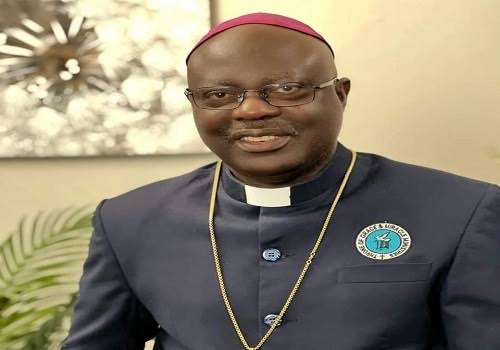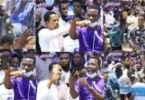A cleric, Bishop Kayode Fanilola, has identified the spread of Yoruba traditional religion in many parts of Europe, Latin America and other parts of the world today as an indication that 300 years of slavery could not destroy their faith.
In particular, Dr. Fanilola, who is the founder of Throne of Grace Church, in Baltimore, United States, explained that the fact that Yoruba traditional religion has been embraced and its traction among blacks and non-blacks in America, Brazil, Trinidad and Tobago, Cuba is an indication these worshipers have not lost touch with their roots.
The cleric, who holds a PhD in Yoruba Language and Culture, said while attempts were made to purge the former slaves of their traditional worship in their various countries through conversion into Catholicism, they discreetly practiced their religion by equating Ogun with St. Michael, Osun or Yemoja with St Mary, and St Jude with Sango.
Speaking on the topic: “Worship in Nigeria: Yesterday, Today and the Future,” at the September edition of the Yoruba Week Day worldwide, organized by the Egbe Ilana Ọmọ Oódua ìn USA, in their efforts to promote the Yoruba culture, tradition, and values Fanilola explained that during such days, the former slaves who had memorized the cognomen of the various Yoruba deities recounted them in Yoruba Language, thereby perpetuating the faith.
“Today, a major feature of Yoruba traditional religion, divination, through Ifa has been modernized and a software application which further popularized the computerized version of divination has been developed. This has been captured in my book, the ‘Digital Quest of the gods.”
According cleric who introduced the teaching of Yoruba at Lincoln University, in Pennsylvania, the observance of Olojo, Osun Osogbo and other festivals across the world and the establishment of Oyotunji village in South Carolina, in the United States gave credence to the revival of Yoruba traditional religion outside the shires of Nigeria.
“Revival of Yoruba traditional religion especially by former slaves globally is very exciting, and if properly institutionalized in this progression, the Osun Osogbo, Olojo in Ife, and other festival in Yoruba land have the potential to attract pilgrims to the country, and it is a possible foreign exchange earner.”
Fanilola bemoaned what he described as the advent of religious fundamentalism and commercialization of worshipers, by both pastors and Imams, in the guise of evoking the heavens for job provision, instead of motivating the flock to back their faith with corresponding measure of work.
“Many pastors and Imam compel people to fast and pray for days in church and mosques, for divine healing, jobs and even admission, basic things provided through good governance in developed countries.
“Poverty among the people, inability to pay their medical bills and unemployment make people search for divine healing and other interventions. But in developed countries, the government even provides unemployment benefits.
“In one particular case, a pastor almost broke the marriage of a couple when he asked a housewife to sow the car gift from her husband as a seed to the church, in order to gain God’s blessings. The bubble burst when the husband discovered the disappearance of the car.’
The second speaker at the occasion, Dr. Bayo Omolola, a researcher in cultural practices of Yoruba people, who spoke on the topic “Governance in Yoruba land before the advent of colonization,” said all cultures of Yoruba people have elements of worship.
A lecturer at Morgan State University in the United States, Omolola alluded to governance in Yorubaland before colonial rule and the nexus between trade and governance. According to him, Yoruba kings depended on Ifa for divination to establish any truth and made inquiries before going to war.
He regretted, however, that importation of democracy had altered method of governance, especially in Yoruba land and eroded the cultures and respect hitherto accorded Yoruba Kings as evident from the disrespect meted out on some Yoruba Obas by former president Olusegun Obasanjo recently.
To Barr. Gbade Adekunjo, Co-ordinator of the programme, the workshop was part of efforts to promote Yoruba language, culture, and civilisation internationally, a need that informed the recent establishment of Voice of Yoruba Radio /TV.
Moderator of the programme, Dr. Remi Bamisile, said the group will not relent in revitalizing and promoting Yoruba culture, tradition and religion across the globe but also to showcase the Yoruba Language as an international language.
. TheWitness







